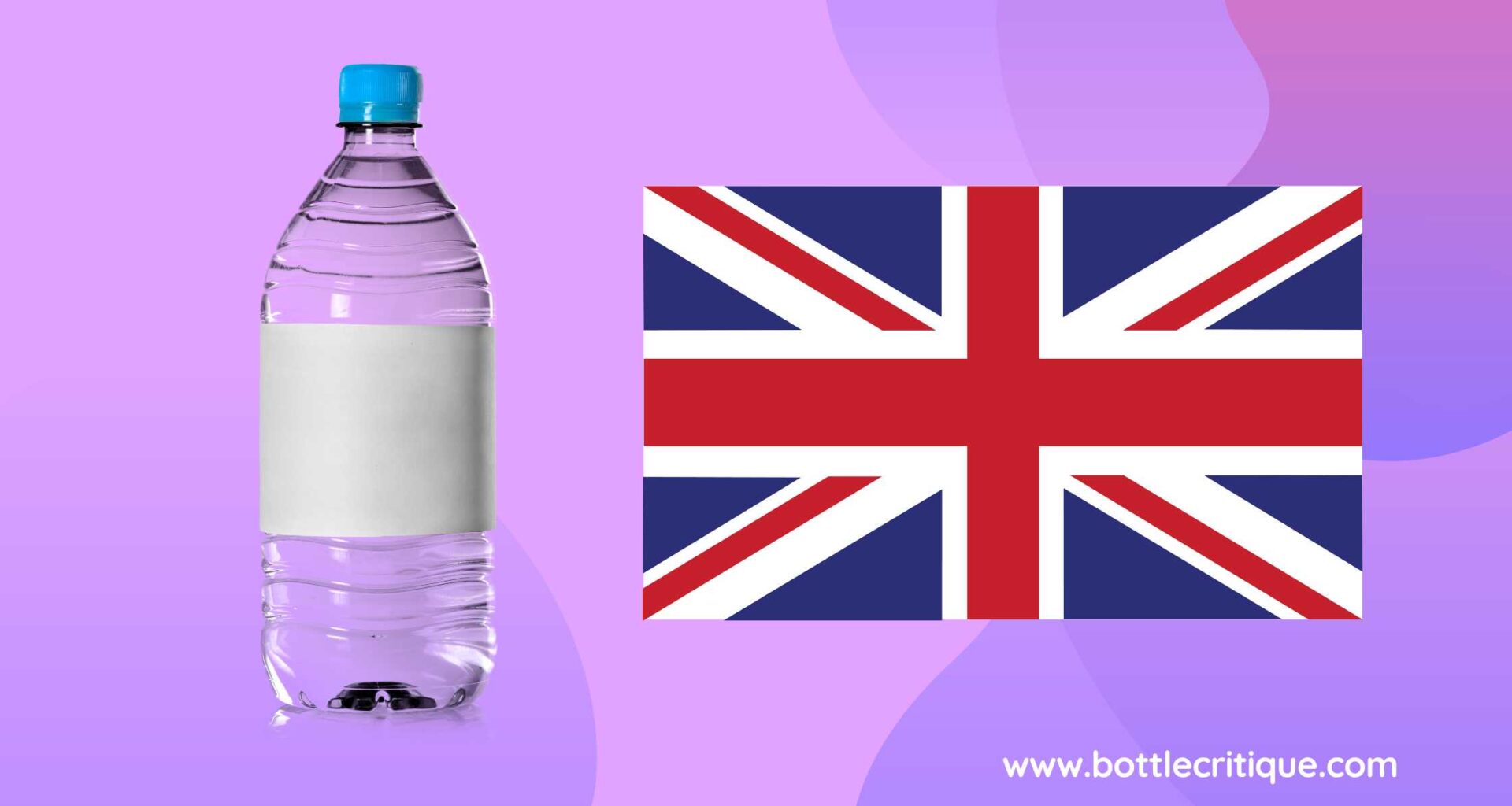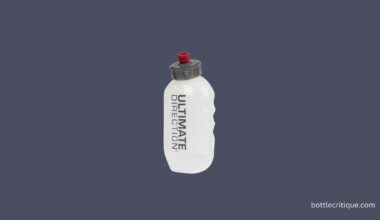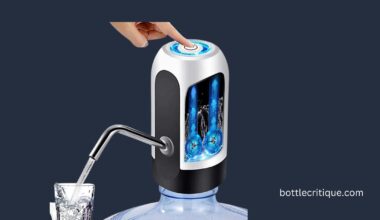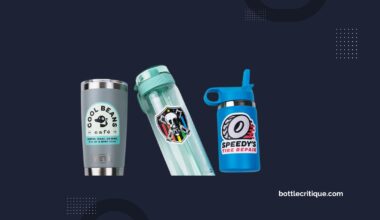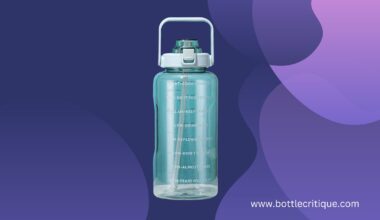If you’ve ever found yourself in the United Kingdom and needed to ask for a water bottle, you might have been met with some quizzical looks. That’s because while the term ‘water bottle’ is universally used in the English-speaking world, in Britain, they have a slightly different terminology. This article will help you navigate the British lexicon and ensure you’ll never be left thirsty on the streets of London, Edinburgh, or Cardiff!
Before we proceed, it’s essential to remember that British English can vary greatly across different regions of the UK. So, while one term might be popular in London, it may not be understood in other parts of the country. But don’t worry, we’ve got you covered.
Let’s delve into the wide world of British English and uncover the proper way to say ‘water bottle’.
Note: ‘Water bottle’ is perfectly understandable in the UK, but if you want to blend in like a local, you might want to use the term they use the most.
Why is it Important to Know How to Say Water Bottle in British?
Knowing how to correctly say ‘water bottle’ in British English can be quite beneficial. This may seem like a trivial detail, but it can make a big difference. Whether you’re traveling to the UK, interacting with Brits in your home country, or simply want to expand your international communication skills, this can be a practical addition to your language toolkit.
Here’s why:
- Enhances International Communication: English may be a common language, but it varies significantly around the globe. The term ‘water bottle’ in American English might be understood in Britain, but using British terminology can enhance understanding and limit potential confusion.
- Respect for Local Culture: Using local lingo shows a level of respect and consideration for the local culture. The British, like anyone else, appreciate when outsiders make an effort to understand and use their language correctly. It helps in fostering positive interactions.
- Improves Your Language Skills: Learning how to say ‘water bottle’ in British English is not merely about this one phrase—it’s about understanding the phonetic and linguistic differences between dialects. This can help improve your overall language skills and accent.
Remember, language is the key to culture. Understanding how to use it correctly can open doors, literally and figuratively!
Now, you might be wondering how exactly to say ‘water bottle’ in British English. Well, it’s pretty straightforward. The British pronounce ‘water’ something along the lines of ‘waw-ter’ or ‘woh-ter’, with a softer ‘t’ sound than in American English. The ‘bottle’ is pronounced ‘bot-ul’, with a soft ‘t’ and a schwa sound in the second syllable.
In the end, it’s not just about pronunciation but also about understanding and appreciating the nuances of different cultures. So, next time you’re in Britain or with Brits, don’t be surprised if they ask you to pass the ‘waw-ter bot-ul’. And now, you’ll know exactly what they mean!
The Different Dialects in the UK
Never underestimate the power of dialects, as they can significantly impact how words are spoken and understood. In the UK, you’ll find a variety of unique dialects, each with its own distinct flavour, affecting everything from the pronunciation to the vocabulary. Here’s what you should know about some of them.
Received Pronunciation (RP)
This is what most people think of when they hear the term ‘British English’. Received Pronunciation, often referred to as ‘The Queen’s English’, is considered the standard form of British English. However, it’s important to note that only a small percentage of the population actually speaks this way.
Cockney
Originating in the East End of London, Cockney is probably one of the most famous British dialects. It’s known for its unique rhyming slang, which can make it particularly challenging for non-natives. For instance, a ‘water bottle’ might be referred to as a ‘whistle and flute’ in the world of Cockney!
Scouse
Scouse is the distinctive accent associated with Liverpool. It’s heavily influenced by the city’s maritime history and the influx of Irish and Welsh immigrants. However, the pronunciation of certain words, including ‘water bottle’, remains largely similar to standard British English.
Geordie
If you find yourself in Newcastle, you’ll likely hear the Geordie dialect. Known for its friendly and melodic tone, Geordie can be quite difficult to understand for those unfamiliar with it. But don’t worry, ‘water bottle’ is pronounced similarly to standard English, just with a bit more of a local twang!
Scottish
Distinct from English, the Scottish dialect is a product of Scotland’s rich linguistic history. It incorporates elements of Gaelic, Norse, and Old English. The pronunciation of ‘water bottle’ here might differ slightly, particularly with the Scottish rolling ‘r’.
In conclusion, the UK is a melting pot of dialects, each offering its own unique take on the language. So, while the phrase ‘water bottle’ might sound similar across most dialects, remember that the way it’s said can still reveal a lot about where someone is from!
Commonly Used British Words and Phrases
As an American, you might find yourself puzzled by some English vocabulary when you’re in Great Britain. The Brits have a few unique words and phrases that they use in everyday speech, and it’s beneficial to learn them if you plan to spend time in the UK. Just as we have regional dialects and slang in the United States, so do our friends across the pond. Here are some commonly used British English words and phrases that you might come across, including how they say “water bottle”.
- Water Bottle: In British English, a water bottle is simply referred to as a ‘bottle of water’. This is one of the terms where there isn’t a significant difference between the American and British versions. So, if you find yourself thirsty in London, just ask for a ‘bottle of water’.
- Loo: This is the British term for a bathroom or restroom. So, when nature calls, you’ll want to ask, ‘Where’s the loo?’.
- Boot: The Brits call the trunk of a car the ‘boot’. So, if you need to store your luggage in a British car, it goes in the boot, not the trunk.
- Lift: If someone directs you to take the ‘lift’, don’t be confused. They’re simply referring to an elevator.
- Queue: In Britain, a line (as in, to wait in line) is referred to as a ‘queue’. So, if you see a sign that says ‘Queue here’, don’t be puzzled. It simply means to line up or wait your turn there.
The beauty of language is that it’s constantly evolving, and different cultures and countries put their own unique spin on it. So don’t be too concerned if you don’t understand every British term right away. Just enjoy the learning experience and embrace the charm of British English!
To make things easier, here’s a quick comparison table:
| American English | British English |
|---|---|
| Water Bottle | Bottle of Water |
| Bathroom | Loo |
| Trunk (of a car) | Boot |
| Elevator | Lift |
| Line | Queue |
In conclusion, while British English may initially seem a bit confusing, you’ll soon start to pick up on the differences. And remember, when all else fails, just ask. The Brits are known for their politeness and will be more than happy to help you out!
British Slang Words for Water Bottle
Whether you’re a Briton or a foreigner, understanding the local lingo can be challenging, especially when it comes to everyday items like a water bottle. In British slang, there are several ways to refer to a water bottle. Let’s take a look.
1. ‘Bottle’
The most common and straightforward term Brits use for a water bottle is simply a ‘bottle’. This might seem obvious, but context plays a key role. If someone says, “I forgot my bottle,” they are likely referring to their water bottle.
2. ‘Flask’
In some contexts, a water bottle might be referred to as a ‘flask’. This is typically used when the bottle is designed for keeping liquids hot or cold. A ‘flask’ in Britain could very well be a water bottle, especially if it’s of the insulated variety.
3. ‘Canteen’
The term ‘canteen’ is sometimes used to denote a water bottle. However, this is more prevalent in a military or camping context. In everyday life, ‘canteen’ may refer to a cafeteria or dining hall.
In the diverse and dynamic world of British slang, context is everything. What might seem like a straightforward translation can often have a different meaning in different settings.
So, the next time you find yourself in the United Kingdom, you’ll be equipped with the local terminology for one of the most basic necessities – a water bottle. Whether it’s a ‘bottle’, a ‘flask’, or even a ‘canteen’, you’ll know exactly what the locals are talking about.
The Origins of British Vocabulary
On your journey to learn more about the way words are used in different parts of the world, we’re now diving into the rich and colourful waters of British vocabulary. When it comes to the English language, British English stands as one of the most recognized and distinguished dialects, steeped in history and cultural influences. It’s always fascinating to explore the origins of British words and phrases, and how they’ve evolved over time.
Historical Influences
When it comes to the British language, it’s a melting pot of influences. The roots of the English language can be traced back to a mix of Old Norse, Latin, French, and Germanic languages, which all have had a significant impact on how the British speak today. For instance, everyday terms like “estate” and “jury” are actually borrowed from Old French.
“The English language is a lot more French than we thought, here’s why” – John McWhorter, Linguistics Professor at Columbia University.
The Evolution of British Vocabulary
However, it’s not just the influence of other languages that shape British vocabulary. Over centuries, words and phrases have naturally evolved to reflect changes in society, technology, and culture. For example, the word “water bottle” in British English simply reflects the need to name a container for holding water.
- Water – Derived from Old English “wæter”, which in turn came from Proto-Germanic “watōr”.
- Bottle – Borrowed from Old French “botel”, which originally meant a small bundle or bag.
Therefore, the phrase “water bottle” that we commonly use today is a result of centuries of language evolution and influences from various cultures.
The Diversity of British Vocabulary
It’s also worth noting that British vocabulary can vary greatly from one region to another within the UK itself. For instance, in some parts of the UK, a water bottle might be referred to as a “water flask” or a “drinking bottle”. This regional diversity adds another layer of complexity and richness to the British vocabulary.
So there you have it! The next time you hold a water bottle, remember the long linguistic journey that has brought us this seemingly simple term. It’s an encapsulation of centuries of history, cultural exchanges, and language evolution. Isn’t language fascinating?
How to Ask for a Water Bottle in British
Asking for a water bottle in British English is actually quite straightforward. The phrase you’ll need is simply, “Could I have a water bottle, please?” However, there are some nuances in pronunciation and etiquette that you might find interesting and useful.
British English Pronunciation
When it comes to pronouncing “water bottle” in British English, there are a couple of key differences compared to American English. Here’s how to say it:
- Water: In British English, the ‘t’ in water is pronounced more like a soft ‘d’ sound, rather than a hard ‘t’. So it sounds more like ‘wah-der’ instead of ‘wah-ter’.
- Bottle: Similarly, the ‘tt’ in bottle is pronounced more like a soft ‘d’. So it sounds more like ‘bo-dle’ instead of ‘bot-tle’. Additionally, the ‘le’ at the end of bottle is pronounced like ‘l’, so bottle becomes ‘bod-l’.
Asking Politely
In British culture, politeness is highly valued. Therefore, when asking for a water bottle, it’s important to use polite language.
Here’s an example:
“Excuse me, could I possibly have a water bottle, please?”
Note the use of ‘could’, ‘possibly’, and ‘please’. These words make your request more polite and respectful, which is appreciated in British culture.
Conclusion
To summarise, when asking for a water bottle in British English, remember to pronounce ‘water’ and ‘bottle’ correctly, and to use polite language. With these tips, you’ll sound like a true Brit!
What to Expect When Ordering a Water Bottle in British
When you’re ordering a water bottle in Britain, it’s essential to know the local lingo. The term “water bottle” might be understood universally, but knowing the British English version can be quite handy when you are in the UK. The Brits have a charming and unique way to say things, and it’s no different when it comes to ordering a water bottle.
Tap Water
In the UK, when you order a “bottle of water” at a restaurant or cafe, you’re likely asking for either still, sparkling, or tap water. It’s common for establishments to offer tap water for free. So, if you’re not specific, you might get a bottle of tap water. To specify, you could say, “Could I have a bottle of still water, please?” or “Could I have a bottle of sparkling water, please?”
Note: The Brits love their tea, so don’t be surprised if you’re offered a cuppa when you ask for water. Don’t worry, it’s just their way of being hospitable!
Water Bottle Terminology
On the other hand, if you’re shopping for a reusable water bottle, the term you’ll want to use is “water bottle”. Unlike some words that change between American English and British English, in this case, it stays the same. If you’re looking for a specific type of water bottle, you might use terms like “insulated water bottle”, “glass water bottle”, or “sports water bottle”.
Fun Fact: In British slang, a water bottle can sometimes be referred to as a “wottle”. So if you hear this term, don’t be confused!
In conclusion, when ordering a water bottle in Britain, context is everything. If you’re at a restaurant or cafe, be specific about what type of water you want. If you’re shopping for a reusable water bottle, simply ask for a “water bottle”. And remember, don’t be taken aback if you’re offered a cup of tea – it’s just the British way!
Tips for Speaking British Like a Local
One of the primary distinctions between American and British English is vocabulary. For example, while you might recognize a “water bottle” in the United States, in the United Kingdom, it might be referred to simply as a “bottle”. Remember, it’s all about context! Here are a few tips to help you navigate the British linguistic landscape like a local.
Understand the Context
Context plays a crucial role in British English. The term “bottle” could mean anything from a bottle of water to a bottle of wine, depending on the situation. So, when you’re in Britain, consider the context before assuming what “bottle” refers to.
Use it in a Sentence
When you’re learning a new language, it’s often helpful to see words or phrases used in a sentence. Let’s take a look at how you might use “bottle” in a British context:
“Could you pass me my bottle, please? I need a drink of water.”
In this sentence, it’s clear from the context that “bottle” refers to a water bottle.
Practice Makes Perfect
Like anything else, becoming comfortable with British English terminology requires practice. Don’t be afraid to use the term “bottle” when referring to a water bottle. The more you use it, the more natural it will feel. Here are a few practical steps you can take:
- Listen to British English: Watch British television shows, listen to British music, or tune into British radio stations to get a feel for the natural use of the language.
- Speak with a British English speaker: If possible, converse with someone who is a native British English speaker. This can provide valuable real-world practice and feedback.
- Practice daily: Make a conscious effort to use British English terms in your daily life. This could mean using “bottle” instead of “water bottle” when you’re thirsty, for example.
Remember, language learning is a journey, not a destination. So, take your time, be patient with yourself, and most importantly, have fun with it!
Practice Your British Accent with Water Bottle Vocabulary
Are you ready to sound more British? One everyday object that you might find yourself talking about is the humble ‘water bottle’. Let’s dive into the British way to say it and practice together. After all, practice makes perfect!
The term ‘water bottle’ in British English is pronounced pretty much the same as in American English. However, the accent and some subtle phonetic nuances might make it sound a bit different. Here’s what you need to know:
- Water: In British English, ‘water’ is often pronounced as ‘waw-ter’, with the ‘r’ at the end being silent or very soft. The ‘a’ sounds more like ‘aw’ rather than the flat ‘a’ in American English.
- Bottle: The word ‘bottle’ in British English is typically pronounced ‘bot-ul’, with a short sound for ‘o’ and a stress on the first syllable. The ‘tt’ sounds more like a soft ‘d’ and the ‘le’ at the end is more of a ‘ul’ sound.
So, when you bring the words together, ‘water bottle’ in British English would sound like ‘waw-ter bot-ul’. Give it a try!
Note: Remember, the British accent can vary greatly across different regions of the UK. The above pronunciation guide is based on Received Pronunciation (RP), often described as the ‘BBC English’ or ‘standard British’.
Exercise: Practicing ‘Water Bottle’ in British English
Now, let’s put your learning into practice. Here’s a simple exercise for you to do:
- Listen to a native British English speaker say ‘water bottle’. You can find plenty of British shows on streaming platforms, or look up pronunciation guides online.
- Try to mimic the pronunciation. Pay attention to the accent and the phonetic nuances.
- Record yourself saying ‘water bottle’. This way, you can play it back and see where you need to make improvements.
- Repeat the process until you’re comfortable with your pronunciation.
With a bit of practice and patience, you’ll be saying ‘water bottle’ like a true Brit in no time! Keep practicing, and soon you’ll notice a significant improvement in your British accent. Happy learning!
The Dos and Don’ts of Speaking British
Let’s now delve into some of the dos and don’ts when speaking British English, particularly when it comes to the term ‘water bottle’. British English, like any other language or dialect, has its own nuances and peculiarities that can seem confusing to non-natives. But don’t worry, we’ve got you covered with some key tips and tactics.
Do’s
- Do pronounce it correctly: In British English, ‘water bottle’ is typically pronounced as ‘waw-tuh bot-ul’. The ‘r’ in water is often silent, and the ‘-tle’ in bottle is not pronounced as ‘-tul’ but more like ‘-ul’.
- Do use it in the right context: The British use ‘water bottle’ in the same way as Americans. It’s a container for holding water, typically used when you’re on the go, at the gym, or whenever you need to stay hydrated.
Don’ts
- Don’t overemphasize the ‘t’: In British English, the ‘t’ in ‘water’ and ‘bottle’ is softer and less emphasized than in American English. So, don’t hit the ‘t’ too hard; instead, it should sound more like a soft ‘d’.
- Don’t forget the ‘uh’: Remember, the ‘-tle’ in ‘bottle’ is pronounced more like ‘-ul’ and not ‘-tul’. This is a common mistake made by non-Brits so try to avoid it.
Remember, practice makes perfect! Don’t be afraid to practice your British English pronunciation with a native speaker or use language learning apps and resources.
Paying attention to these dos and don’ts will not only help you to say ‘water bottle’ correctly in British English, but will also enhance your overall British English speaking skills, making your conversations more native-like and fluent. Happy practicing!
Where to Learn More About British Vocabulary
knowledge of British vocabulary beyond ‘water bottle’? Fortunately, there are numerous resources available that can help you dive deeper into the fascinating world of British English. Here, we’re providing you with a rundown of some of the best places where you can learn more about British vocabulary.
Online Courses and Websites
Many online platforms offer comprehensive courses on British English. They not only teach you the vocabulary but also provide insight into the culture and etiquette that surround the language.
- British Council: As the UK’s international organisation for cultural relations and educational opportunities, the British Council provides a wealth of resources for learning English, complete with a British accent and vocabulary.
- LearnEnglish: This is a free learning platform provided by the British Council, with a specific focus on British English.
- BBC Learning English: Yes, you heard it right! BBC offers a free learning resource for English learners, where you can familiarize yourself with British vocabulary and accents.
Books
If you’re more of a traditional learner who prefers the feel of a book in your hands, there’s an array of books available that can assist you in mastering British vocabulary.
- The Oxford Guide to British and American Culture: This book provides an extensive comparison between British and American vocabulary.
- British English A to Zed: A compendium of British terms and their American equivalents, a great resource for any English learner.
- The Cambridge Guide to English Usage: A comprehensive guide that includes the differences between British and American usage of English.
Mobile Apps
In this digital age, learning has become more convenient than ever. Here are a few mobile apps that will help you learn British vocabulary on the go.
- Babbel: Babbel offers specialized courses in British English, helping you understand the nuances of the vocabulary.
- Duolingo: A popular language learning app that also offers courses in British English.
- Rosetta Stone: Known for its immersive teaching style, Rosetta Stone also offers a course dedicated to British English.
Remember, the key to mastering any new language, including British English, is consistency and practice. Happy learning!
